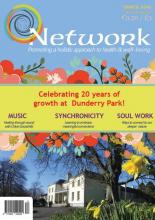Viktor Frankl and Logotherapy
by:
by Stephen J. Costello, Ph.D.
Published:
Friday, June 12, 2015

Logotherapy is an internationally acknowledged and empirically based, meaning-centred, existential approach to psychotherapy. ‘Logos’ is here translated as ‘meaning’ or ‘spirit’ but understood in the non-religious sense.
Logotherapy and existential analysis (LTEA) was developed by the Austrian psychiatrist, neurologist, and philosopher Dr. Viktor E. Frankl. MD., PhD. (1905-1997). It focuses on the will to meaning. As a holocaust survivor, and author of the international bestseller Man’s Search for Meaning (voted one of the ten most influential books ever written) Frankl contends that the striving to find meaning and purpose in one’s life is the primary and most powerful motivational force in man.
Logotherapy helps individuals to transcend the self and to use the triumphant power of the human spirit in order to face suffering, loss, tragedy, pain, inner emptiness, and perceived meaninglessness – what Frankl calls the ‘existential vacuum’. Frankl’s vision and perspective includes a message of hope for mankind, fostering an attitude of ‘tragic optimism’ in the midst of life’s vicissitudes and vagaries. He views the human person as being in three dimensions: body, mind and spirit, and according to Frankl, the spirit can never be sick. There is always something intact even in illness, which he calls the ‘noetic’ core of the person.
This unique approach to therapy is suitable for those who have identifiable symptoms such as phobias, stuttering, sexual dysfunctions, obsessive-compulsions, anxieties, depression etc. and for those people questioning or exploring the meaning of life and experiencing meaninglessness, boredom or despair or simply feel that they have not reached their potential or perceive they are leading an unfulfilled life.
Unlike most of the other psychotherapies, Frankl focuses on the healthy, spiritual core of man and garnishes his inner resources of healing. Logotherapy, so, is a healing through meaning. The basic assumptions of logotherapy are the following: life has meaning under all circumstances even the most miserable; people have a ‘will to meaning’; and people are free to activate this will to meaning and find meaning in life even in the most miserable of circumstances.
The human being consists of body (soma), mind (psyche) and spirit (noös); this is known as his ‘tri-dimensional ontology’. Frankl was both a scientist and a philosopher. The attributes of this noetic core are: Responsibility, Authenticity, Choices, Values, Self-transcendence, Will to meaning, Love, and Conscience.
According to Frankl, there are three main ways through we may find meaning in life: Creativity (giving something to the world through self-expression), Experience (receiving something from the world through nature or culture or the environment), and Attitude (changing our mental attitude toward a condition especially if confronted with unavoidable suffering).
Frankl distinguishes between two different meanings: firstly, you have the ‘meaning of the moment’ – these are the innumerable demands life imposes on us at every minute of our lives and which call for answers and choices, and secondly, ‘ultimate meaning’ – this may only be glimpsed; it may be God or the search for the true, the good or the beautiful. It is beyond our comprehension.
Life requires something of us and we must respond to life’s questions; this is the call or summons. We do this by discerning the meaning of the moment and making responsible decisions; at the level of the drives we are driven but at the level of the spirit we decide. Our guidance comes from the intuitive and creative, though fallible, voice of conscience within us, what Frankl calls a ‘hint from Heaven’.
According to Frankl, life does not owe us happiness; rather it offers us meaning. Happiness is a by-product, a side-effect, of our search for meaning, as is health and wealth too. Happiness, he teaches, must not be pursued, rather it must ensue and this is more likely when we forget about it.
The lack of meaning in life results in what Frankl calls the ‘existential vaccum’ which is a state of boredom and apathy, of ennui and inertia; if this state persists it may progress into an existential frustration and result in a ‘noogenic neurosis’. We try to fill the void with drugs, drink, food, violence but ultimately remain unfulfilled and lost.
Life is dynamic and we are confronted with what Frankl calls the ‘tragic triad’ of suffering, guilt and death. Often we are required to change our attitude in order to find meaning. To Freud’s ‘cheerful pessimism’ Frankl offers a vision of ‘tragic optimism’ – one that doesn’t deny the tragic dimensions of human existence but which looks to healing and forgiveness, to health and meaning and life so that tragedy may be transformed into triumph.
The medicine chest of logotherapy looks to our noetic (spiritual) core for health and healing. There the triumphant or ‘defiant power of the human spirit’ is activated and brought to bear on life’s various challenges and tasks. It is through self-transcendence – going out to others in love or service – that the meaning of our existence is revealed.
The logotherapist’s main clinical tool is ‘Socratic dialogue’ where the logotherapist and the client together explore areas of meaning while realising that meaning cannot be prescribed, only described, and discovered. It also employs other techniques such as ‘dereflection’ and ‘paradoxical intention’. Dereflection stops hyperintention; here the emphasis is outward and away from the ego towards the world out there. It is not distraction but an inner monologue we have with ourselves which serves self-transcendence. It involves a radical reorientation of our desires, towards something Other.
Paradoxical intention involves wishing to have happen the thing we fear most. So, for example, if we think we are going to tremble when walking over to the lectern to speak or if we think we are going to sweat we are instructed to will that, not to fight it as desire cancels out fear. Of course it is far more complicated than this and these techniques are particularly powerful and have a huge success rate. They may be used in phobias, anxiety disorders, insomnia, and many other cases.
Frankl’s logotherapy is a philosophy of life and can be employed with beneficial effect in every profession and walk of life. It is used, not only by therapists, but by teachers, nurses, doctors, ministers and business managers. Whatever about our past, our future is shaped by the choices we make today.
About the author:
Dr. Stephen J. Costello is a philosopher, logotherapist/existential analyst and author. He is the founder and director of the Viktor Frankl Institute of Ireland. Stephen has been lecturing philosophy and psychology for over twenty years in UCD, Trinity College, and Dublin Business School.
logotherapyireland.com
Latest Issue
Upcoming Events
-
17/04/2020 to 26/04/2020
-
18/04/2020
-
23/04/2020
-
15/05/2020 to 23/05/2020
-
16/05/2020 to 17/05/2020
Recent Articles
Article Archive
- July 2018 (2)
- August 2018 (1)
- September 2018 (1)
- November 2018 (1)
- December 2018 (1)
- February 2019 (1)
- April 2019 (2)
- May 2019 (2)
- June 2019 (1)
- July 2019 (2)

